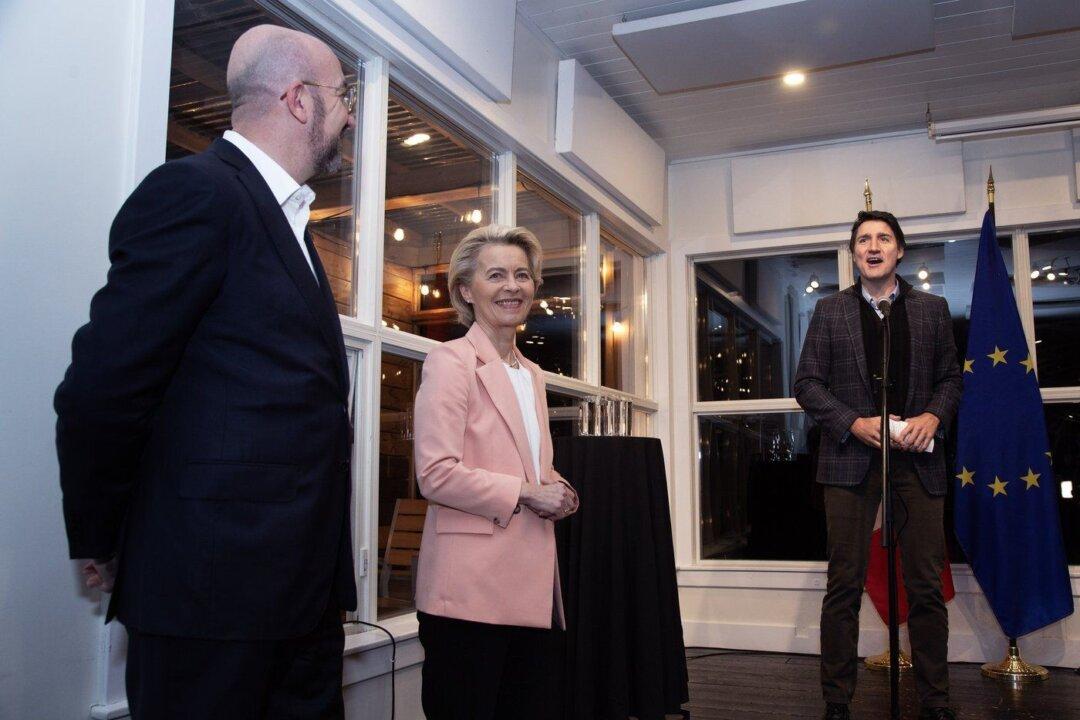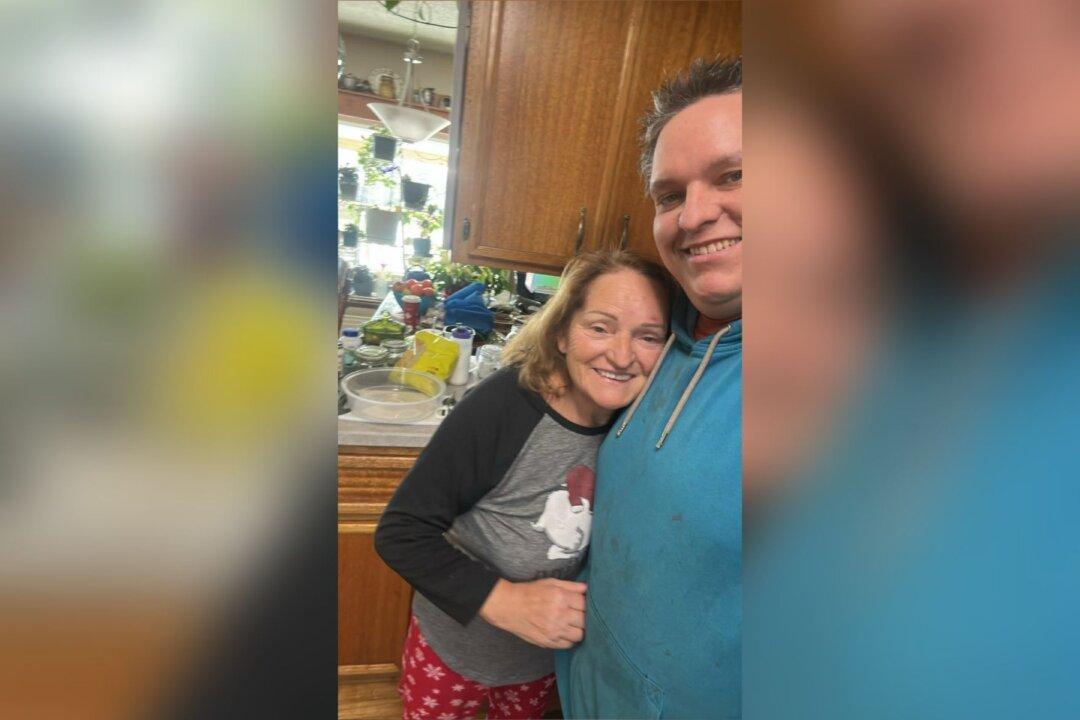Prime Minister Justin Trudeau kicked off a two-day summit with the top two heads of the European Union on Thursday night in a small brewpub on the edge of the Atlantic Ocean in Newfoundland and Labrador’s capital city of St. John’s.
Though formal discussions with European Council President Charles Michel and European Commission President Ursula von der Leyen are expected to begin Friday, Trudeau wasted no time making announcements during his summit-opening speech on Thursday night.





